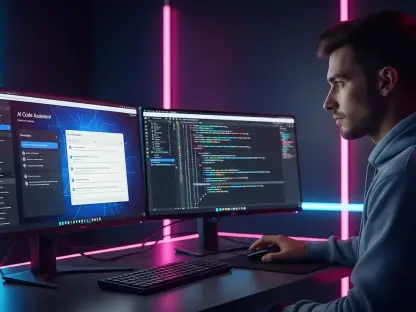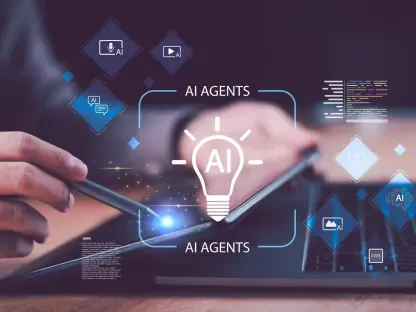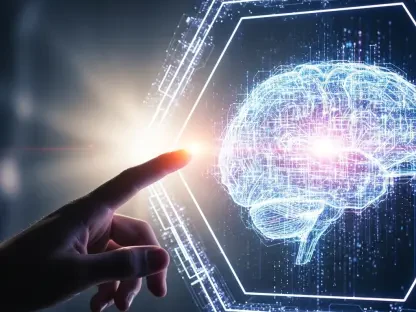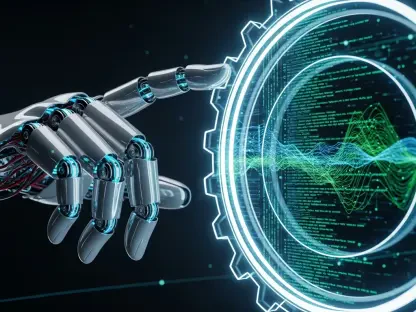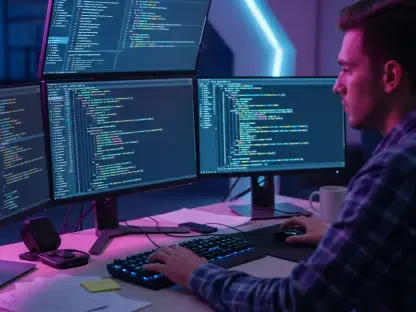I’m thrilled to sit down with Anand Naidu, our resident development expert who brings a wealth of knowledge in both frontend and backend coding. With his deep insights into various programming languages, Anand is the perfect person to discuss the transformative power of AI in coding and professional upskilling. Today, we’ll explore how non-technical individuals are breaking into tech, the role of AI tools in democratizing software development, and the balance between personal life and career growth through innovative learning methods.
How do you see the trend of non-technical professionals, like HR executives, diving into coding with the help of AI tools?
I think it’s incredibly exciting. The barriers to entry in tech have historically been high, requiring years of formal education or specialized training. But with AI tools, we’re seeing a shift where someone with no prior coding experience can build functional applications. It’s empowering for professionals in fields like HR to solve real-world problems in their domain using tech. This trend is democratizing development, allowing diverse perspectives to shape software solutions, which ultimately benefits the industry as a whole.
What inspired the idea of using AI to upskill during unconventional times, such as a career break or personal life changes?
The inspiration often comes from a mix of necessity and opportunity. Many professionals, especially during career breaks like maternity leave, feel a strong urge to stay relevant in a fast-moving world. AI tools provide a unique chance to learn at your own pace without needing a structured classroom setting. I’ve seen individuals turn periods of downtime into moments of reinvention, using these tools to explore new skills that align with their personal or professional goals. It’s about seizing the moment to adapt and grow, no matter the circumstances.
Can you explain the concept of ‘vibe coding’ and how it’s changing the way people approach software development?
Vibe coding is a fascinating approach where you describe what you want in plain, everyday language, and AI translates that into functional code. It removes the need to master complex syntax or programming languages upfront. For many, it’s a game-changer because it lowers the learning curve and lets people focus on ideas rather than technical details. It’s reshaping development by making prototyping faster and more accessible, though it still requires human oversight to refine and ensure reliability for larger, more complex projects.
How do AI coding tools help someone with no tech background overcome the initial challenges of learning to code?
AI tools act like a patient mentor. They guide beginners by generating code based on simple prompts, offering explanations, and even suggesting fixes when errors pop up. For someone without a tech background, this means you don’t have to spend months learning the basics before building something tangible. Instead, you can start creating right away, learning through hands-on experience. The instant feedback these tools provide helps build confidence, turning a daunting process into something approachable and rewarding.
What are some of the biggest hurdles non-coders face when using AI to build applications, and how can they navigate those?
One major hurdle is understanding and debugging the code that AI generates. Since the user might not know the logic behind it, errors can feel like a black box. Another challenge is ensuring the output matches the intended vision, as AI might misinterpret vague prompts. To navigate this, I recommend starting with small, clear goals and iterating gradually. Also, leveraging online communities or tutorials can help fill knowledge gaps. It’s about trial and error—being persistent and treating mistakes as learning opportunities.
How do you think learning to code with AI tools impacts traditional career paths, especially in non-tech fields like HR?
It’s transformative. For fields like HR, learning to code with AI tools means professionals can directly address inefficiencies or create tailored solutions without relying on IT teams. It adds a layer of versatility to their skill set, making them more adaptable in an increasingly tech-driven workplace. Beyond that, it shifts how they view their role—suddenly, they’re not just managing processes but innovating them. This hybrid skill set can redefine career trajectories, opening doors to roles that blend domain expertise with technical know-how.
What role do you believe AI-driven upskilling plays in balancing personal responsibilities with professional growth?
AI-driven upskilling is a lifeline for many balancing personal and professional demands. It offers flexibility—learning can happen in short bursts, whether during a lunch break or after bedtime routines. This adaptability is crucial for parents or caregivers who can’t commit to traditional learning schedules. It also reduces the guilt of ‘falling behind’ by providing a way to grow professionally without sacrificing personal time. I see it as a bridge that lets people maintain both worlds without feeling forced to choose.
What is your forecast for the future of AI tools in professional upskilling across industries?
I’m optimistic about the trajectory. I foresee AI tools becoming even more intuitive, tailored to specific industries like healthcare, education, or finance, where non-technical professionals can build solutions unique to their challenges. We’ll likely see a surge in hybrid roles that blend domain expertise with tech skills, reshaping how companies approach talent development. The challenge will be ensuring these tools don’t oversimplify complex skills, but I believe with the right balance, AI will level the playing field, empowering more people to contribute to innovation in ways we haven’t yet imagined.


